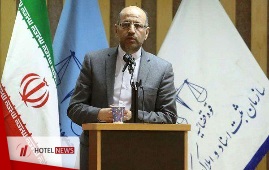
"Mohammad Reza Dashti Arddakani" Chairman of the Tourism Fraction of the Islamic Consultative Assembly; Two of the nine clauses between Iran and China are about tourism, which is a good indication of the importance of the tourism industry for the country. Tourism and travel in accordance with health protocols do not lead to the spread of the corona, and we should not abandon the tourism industry, on which many jobs depend. We are obliged to create a culture about tourism during the corona, and this issue should be explained through the media so that tourism is not harmed any more.
Create: Sep 30, 2020 Edit: Sep 30, 2020 Regional News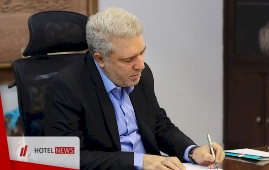
“There is no doubt that tourism development in Iran and throughout the world can unify and share the national benefits and promote the culture of tolerance,” Mounesan said in a message issued on the occasion of World Tourism Day. “September 27th, the World Tourism Day, has been also included in our formal calendar as 'the national tourism day'. This day is also concurrent with ‘the Holy (Sacred) Defense National Week’, the event that all of us are indebted to; we are all are indebted to the sacrifice and self-devotion of the Iranian brave youth who defended the country.” He also expressed delight that segments of the Sacred Defense reminiscences constitute tourist destinations in the country, noting “Fortunately, a part of the Holy Defense memories is registered as an important tourist destination through the committee of Rahian-e Noor (the Pursuers of Glory).” The minister referred to the slogan that the World Tourism Organization has selected for the 2020 World Tourism Day, saying: “This year’s slogan is ‘Tourism and Rural Development’, something that all tourism activists believe that villages and villagers are playing a crucial role in tourism, especially in ecolodges.” “We hope that our plans for setting up 2,000 ecolodge units throughout the country would be a promising event to build up the rural regions. A 50% increase in the number of accommodation units in Iran and the addition of travel to the household commodities can affect the economy and development of less-developed, lesser-known, and rural regions.” “There is no doubt that tourism development in Iran and throughout the world can unify and share the national benefits and promote the culture of tolerance. So, it can be said that World Tourism Day is the day of international solidarity, the day when the struggle is substituted by mutual understanding and the understanding of tourism philosophy can lead to a better understanding of the world.” Referring to the predicaments the tourism industry faced during the past Iranian calendar year (ended March 2020), Mounesan said: “Last year was a tough one; it was started by the deadly floods and ended with the spread of COVID-19. Nevertheless, at the end of last year, we broke the record of inbound tourism with 8,800,000 foreign tourists. During this crisis, we tried to support the tourism units financially and spiritually to be able to witness their development is the post-corona period.” “As President Rouhani said during the opening ceremony of 87 tourism projects in 15 different provinces, paying attention to the spiritual, cultural and historical aspect of our various tourist attractions is of utmost importance, we hope that with the help and participation of people and the private/governmental investors, we would be able to satisfy our responsibility as it suits our amazing country.” “In the end, I want to congratulate the World Tourism Day to all tourism activists, beneficiaries, and enthusiasts and wish a brighter future f other tourism industry of Iran.” Mounesan said last month “Corona is a [bitter] reality but it cannot bring traveling to a complete standstill” as he underlined that “people’s health is our first priority.” “If coronavirus-related restrictions persist, the tourism industry of the country will suffer irreparable losses and many tourism insiders will be bankrupt… it’s time to replace ‘smart and responsible traveling’ with ‘do not travel’ recommendations.” The minister announced in August that Iran’s travel sector had suffered a loss of 12 trillion rials (some $2.85 billion at the official rate of 42,000 rials) since the outbreak of the coronavirus pandemic.
Create: Sep 27, 2020 Edit: Sep 30, 2020 Regional News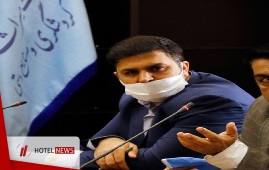
Ismail Barat, Deputy Director of the Office of Monitoring and Evaluation of Tourism Services; No new guidelines have been issued for travel agencies, but a directive called the Facilitation Directive has been issued to them in late August. This circular is not intended for travel service offices, but covers all tourist facilities and some of its sections are dedicated to travel offices. It seems that some comments about the facilitation directive are due to ignorance.
Create: Sep 25, 2020 Edit: Sep 25, 2020 Regional News
I send my warmest greetings to this meeting of the Executive Council of the World Tourism Organization. I thank the Government of Georgia for hosting this event, with all necessary safety measures and protocols in place. Tourism can be a force for good in our world, playing a part in protecting our planet and its biodiversity, and celebrating what makes us human: from discovering new places and cultures to connecting with new people and experiences. This Executive Council is an important platform for collaboration, to explore the way forward, and to support the future of tourism, on which millions of people’s livelihoods depend. The decisions you take today can help to shape the future of tourism, making it more resilient and sustainable, driving green economic growth and supporting jobs. I wish you every success in your deliberations. António Guterres UN Secretary-General
Create: Sep 22, 2020 Edit: Sep 22, 2020 TV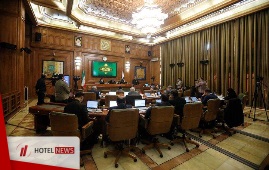
The annexation plan was approved as an increase in the legal value resulting from the implementation of urban development plans in paragraph "d" of the decree "Organization and development of tourism facilities in the city of Tehran." Some tourism projects are suspending this decree, and if completed, the activities of tourism activists will be done more quickly. Investors in the tourism industry will lose the economic justification of their projects if they pay taxes on the increase in legal value resulting from the implementation of development projects.
Create: Sep 21, 2020 Edit: Sep 21, 2020 Regional News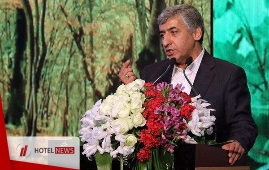
"Harmatullah Rafiei" President of the Iranian Air Travel and Tourism Services Association; Half a year has passed and tourism has reached the edge of extinction, but neither proper support nor rescue policies have taken place. The travel and tourism industry in Iran normally experiences a severe decline with the beginning of autumn and the end of the year. Tourism could be saved, but they preferred to do other things, such as starting private organizations and offering projects such as "apartment service".
Create: Sep 21, 2020 Edit: Sep 21, 2020 Regional News
Technique 181 Understand When to Mention Your Hotel’s Name When Responding to Consumer Blogs; When responding to a negative online review, the name of the hotel should never be mentioned in the response. Con- versely, when responding to a positive online review, the name of the hotel should always be mentioned in the response. Technique 182 Understand When to Use “I” or “We” When Responding to Consumer Blogs; When responding to a negative online review, the hotel manager should use ‘I’ in the online response (e.g., ‘I will look into this issue’). The use of the word “I” signals owner- ship of the problem and resolution. On the other hand, when responding to a positive online review, the manager should use ‘we’ to spread the credit among the staff (e.g., ‘we are very glad that you enjoyed your stay’). Technique 183 Paraphrase the Problem When Responding to Negative Consumer Blogs; When responding to a negative online review, the hotel manager should paraphrase the guest’s concern in the online response. Such paraphrasing communicates to all those read- ing the response that the hotel has good listening skills. Technique 184 Include a ‘Relate’ Statement When Responding to Negative Consumer Blogs; When responding to a negative online review, the hotel manager should attempt to include a statement detailing how s/he can relate to the problem being communicated by the guest. Including a ‘relate’ statement communicates to all those reading the response that the hotel is empathetic to guests’ concerns. Technique 185 Require One New Idea Per Week; At every weekly management meeting, one manager should be required to share an innovative idea with the group that has never been attempted in the hotel. Technique 186 Graph Guest Problems According to Frequency and Seriousness; Guest problems should be tracked and plotted on a graph according to their frequency and seriousness. A cross-depart- mental team of 6–8 line-level associates and managers should be created to derive strategies for fixing the most pressing problems based upon frequency and/or seriousness. Technique 187 Text Mine Consumer Blogs for Trends; Hotel management should contract with a 3rd party ven- dor (e.g., Revinate) so that consumers’ blog postings can be analyzed for trends. Many of these 3rd party vendor products also enable management to monitor trends in competitors’ blog postings. Technique 188 Data Mine the Centralized Reservations System for Trends; Hotel management should data mine its centralized res- ervation system to identify non-obvious patterns and trends in guests’ habits and preferences. The results of such data mining can be used to better serve guests, but also to build an enhanced understanding of proper timing and placement of marketing messages. Chain affiliated hotels likely already have data mining services available to them. Managers at inde- pendent hotels can be taught some basic data mining func- tions by a consultant. The extent of data mining capabilities offered by 3rd party management companies appears to vary widely across the industry. Technique 189 Utilize the Front Desk as a Listening Post; Front desk associates should consider their work area a “listening post” from which they can overhear conversations between guests. Many guests may be reluctant to actively voice complaints to hotel staff, but discuss various issues among themselves (e.g., the ice machine was too noisy; the sidewalks leading to the parking lot were too icy). Such information should be entered into the logbook and denoted as “listening post feedback.”
Create: Sep 5, 2020 Edit: Oct 18, 2020 Hotel Management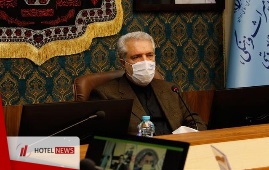
Ali Asghar Monesan, Minister of Tourism; At national level, it is often argued that travel intensifies the corona. Lack of social distance, congestion and not wearing a mask are the main causes of the prevalence and travel has the least impact. In a letter to the President, I have emphasized that if this trend continues, the tourism industry will suffer irreparable damage.
Create: Sep 5, 2020 Edit: Sep 5, 2020 Regional News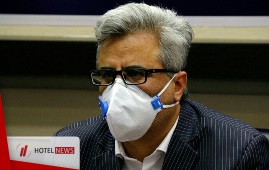
"Vali Teymouri" Deputy Minister of Tourism announced; The details of special support for the tourism industry and handicrafts are mentioned in the minutes of the economic headquarters meeting and there is talk about the place of financing. The final result will be reached in soon with the Vice President for Economic Affairs, which is very crucial. There is no decision to cancel the trip at the Coronavirus National Headquarters, and general managers must defend travel in provincial meetings.
Create: Sep 5, 2020 Edit: Sep 5, 2020 Regional News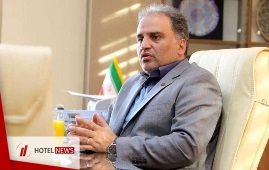
"Jamaluddin Azizi", the mayor of Yazd, spoke at a symposium of tourism activists; The tourism industry must have a plan to guide tourists because people travel in such conditions. All devices must be aligned and we must accept that the city and economy of Yazd depend on the presence of tourists, of course, by observing health protocols.
Create: Aug 29, 2020 Edit: Aug 29, 2020 Regional News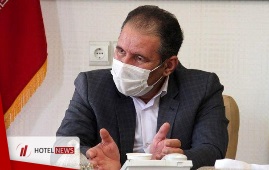
"Fereydoun Allahyari", General Manager of Cultural Heritage, Tourism and Handicrafts of Isfahan Province, explained; The plan to compile a calendar of tourism events based on cultural events has been carried out by a research team and the collective cooperation of elites for at least four centuries. These cultural events are arranged according to the times from March to the end of February each year, and based on it, it is possible to plan to attract tourists throughout the year.
Create: Aug 25, 2020 Edit: Aug 25, 2020 Regional News
